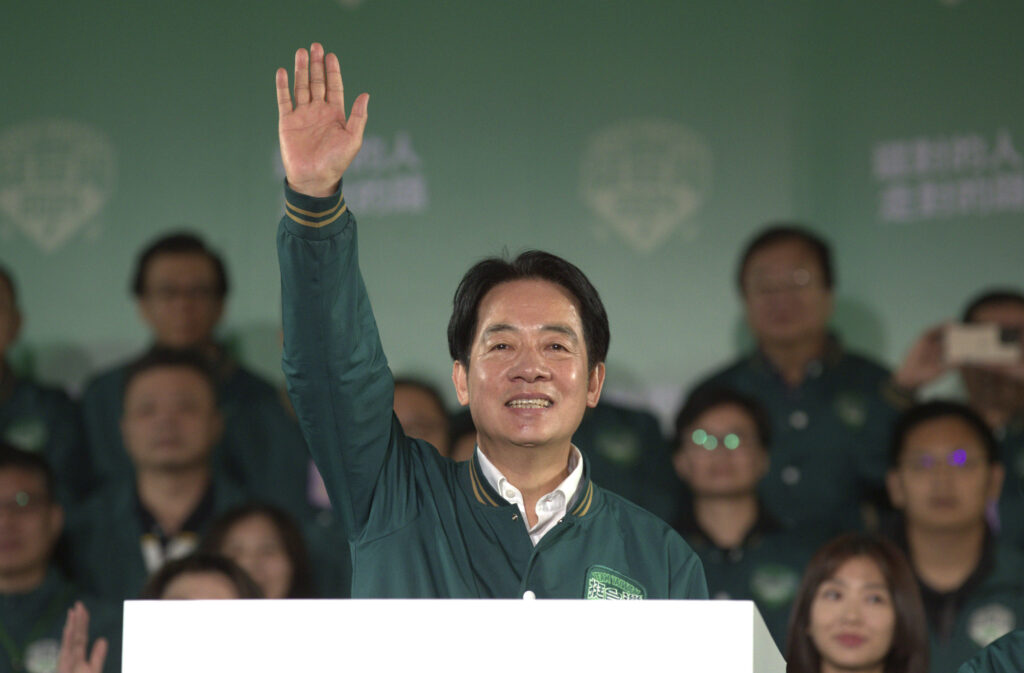A group of former U.S. officials met Monday with Taiwanese President Tsai Ing-wen and her newly elected successor Lai Ching-te after a historic win for the Democratic Progressive Party that has raised the ire of neighboring China.
China has worked overtime to paint Lai as a “troublemaker” and warned voters against supporting his candidacy.

Lai, currently Taiwan’s vice president, secured 40% of the vote in Saturday’s election, beating out two rivals who argued for closer ties with Beijing and gave the DPP three terms in a row in the presidential office. No party has been elected to more than two successive terms since the self-ruled island began holding presidential elections in 1996.
Lai, a 64-year-old doctor who came from a poor mining family, will take office on May 20.
At a rally, Lai called for unity while also pledging his commitment to defending Taiwan’s identity.
“Between democracy and authoritarianism, we choose to stand on the side of democracy,” Lai said. “This is what this election campaign means to the world.”
The unofficial bipartisan U.S. delegation, which arrived in Taipei on Sunday and met with Tsai, included Stephen Hadley, national security adviser under then-President George W. Bush, and James Steinberg, deputy secretary of state under then-President Barack Obama. Lauren Rosenberger, chairwoman of the American Institute in Taiwan, led the group.
Hadley congratulated Tsai and her party on the election win and said the U.S. commitment to Taiwan was “rock solid,” NBC News reported.
The Chinese Foreign Ministry said Monday that the Taiwanese election was China’s “internal affair” and “will not change the basic fact that there is one China and Taiwan is part of China.” A day earlier, the Chinese Foreign Ministry said a statement by Secretary of State Antony Blinken congratulating Lai sent a “gravely wrong signal” and “seriously violated” America’s commitment “to maintaining only cultural, commercial, and other unofficial relations with the people of Taiwan.”
The U.S.’s visit comes as Beijing continues to apply pressure on Taiwan supporters to change their allegiance. Most recently, Nauru, a Pacific island nation, announced it would be flipping its support in favor of China from Taiwan. The move prompted one Taiwanese official to call it a “blatant challenge” to democracy.
CLICK HERE TO READ MORE FROM THE WASHINGTON EXAMINER
Nauru announced Monday it would resume full diplomatic relations with Beijing “in the best interests” of the country and its 12,500 people. The island nation had recognized China from 2002 to 2005 before switching its support to Taipei.
Taiwan’s Ministry of Foreign Affairs said the timing of Nauru’s announcement was purposely released to offend Taiwan and felt “like an ambush.”
